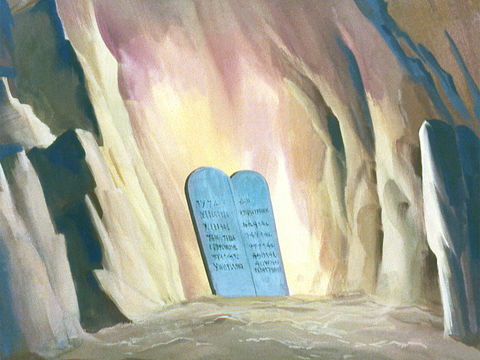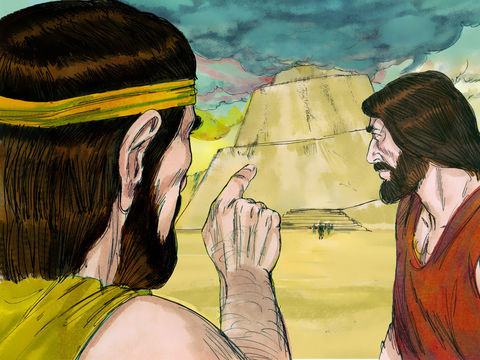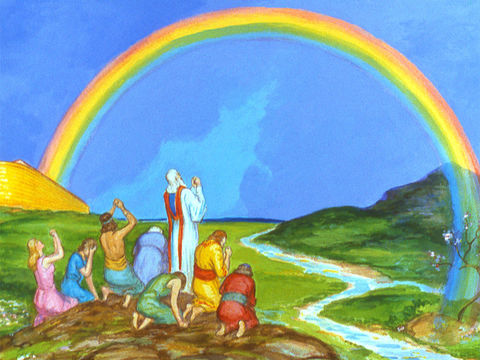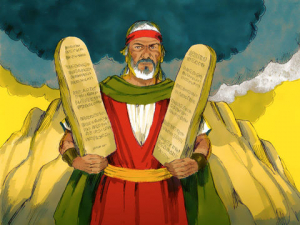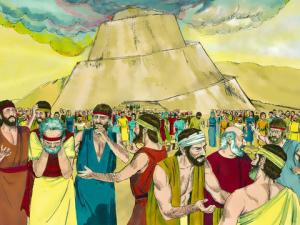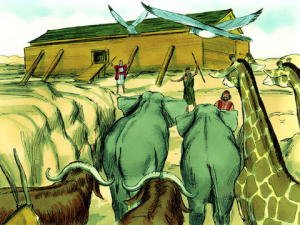Children’s Bible Program – Level 3: Lesson 17 “Israel Rebels in the Wilderness”
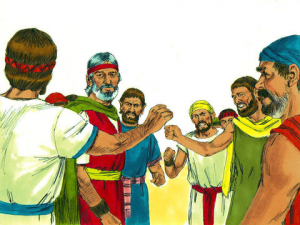
Sweet Publishing | FreeBibleImages.org
By Janth English
Read Together: As God delivered Israel from Egypt, they witnessed miracle after miracle! The children of Israel walked through the Red Sea on dry land with walls of water on both sides. They watched the Egyptian army get swallowed up by the Red Sea as God allowed the water to crash down on them. But they still complained to God! When they had no water, they complained. When they had no food, they complained again. It’s understandable that they were hungry and thirsty, but instead of asking God for help, they accused Him of bringing them out into the wilderness to die. Again and again, they said “Let’s go back to Egypt”. When Moses went up to the top of Mt. Sinai to receive the Ten Commandments from God, the Israelites made a golden calf to worship. They bowed down to it and called it their god, even though they had just promised to obey the real God who had brought them out of slavery! When Moses sent the spies to scout the land of Canaan, they came back with a bad report even though the land was full of delicious fruit. All the spies, except Joshua and Caleb, said they should not enter the promised land because they saw the giants who lived there. They had no faith that God would deliver them, so the people refused to go in and inherit the land God had promised. For this, and for all their constant complaining and faithlessness, God sentenced them to wander in the wilderness for forty years. This was one year for each day the spies were in Canaan, until everyone of that generation had died.
Read Together: Ex. 15:19-24, 16:2-4; Num. 11:1-10; Ex. 32:1-8; Num. 13:17-33, 14:1-4, 26-35
Discuss:
- Point out to your child that three days after Israel came through the Red Sea they were complaining about water. Israel had forgotten God’s power very quickly. Discuss why this would happen.
- Have a discussion with your child about faith. The Israelites knew God was real, but they lacked faith. Israel proved that witnessing miracles does not guarantee faith. Include James 2:18 in the discussion.
- Talk with your son or daughter about the Israelites’ tendency to complain. Do we have the same characteristic? How does God feel about complaining? What is the antidote for complaining?
Review Memorization:
Deut. 30:15-16 “See, I have set before you today life and good, death and evil, in that I command you today to love the Lord your God, to walk in His ways, and to keep His commandments, His statutes, and His judgments, that you may live and multiply; and the Lord your God will bless you in the land which you go to possess.”


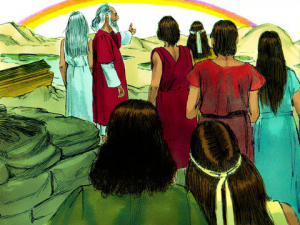
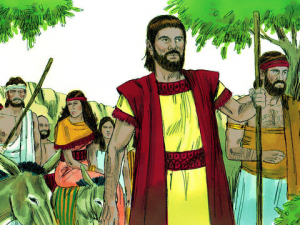

 The more things we like to do, the more common ground we’ll find with others. And as Mr. Ames said, the more versatile we are, the more effective we can be as Christ’s Ambassadors. God made a lot of people, and almost all of them have passions they love talking about. Being able to talk to many different people, about many different things, can improve the light in which people see you, and improve the light in which they see “that Church you’re in.” It’s good to have a Thing, but as Mr. Ames showed, it’s even better to have many.
The more things we like to do, the more common ground we’ll find with others. And as Mr. Ames said, the more versatile we are, the more effective we can be as Christ’s Ambassadors. God made a lot of people, and almost all of them have passions they love talking about. Being able to talk to many different people, about many different things, can improve the light in which people see you, and improve the light in which they see “that Church you’re in.” It’s good to have a Thing, but as Mr. Ames showed, it’s even better to have many.